Protecting the
Health of Wild Quail
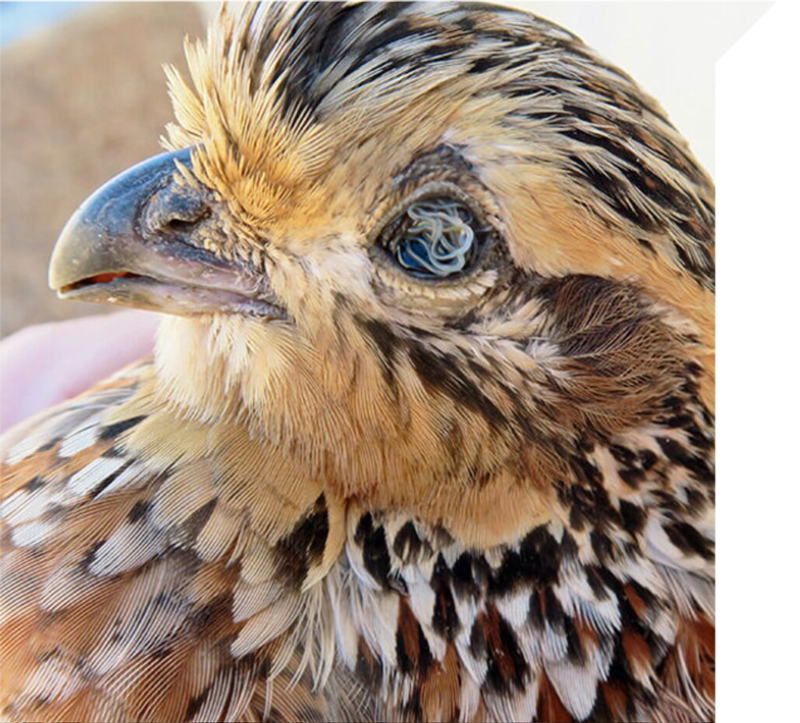
Parasite Research

“The role of wildlife disease in wildlife has probably been radically under-estimated.” – Aldo Leopold, 1933
In the Fall of 2010, the Rolling Plains of West Texas was reeling from the revelation that although they had received decent rainfall and the habitat appeared good, fall quail populations had failed to respond.
That prompted the Rolling Plains Quail Research Foundation to ponder: what factors might we be overlooking? Rick Snipes, president of the RPQRF board at the time, directed the Foundation to design and conduct a comprehensive scientific survey into disease (in the broadest context) as a possible explanation for the decline of bobwhite and scaled quail in the Rolling Plains. The RPQRF Board approved $2 million for this new endeavor dubbed “Operation Idiopathic Decline” (“idiopathic is medical jargon for “the doctor doesn’t know”). Dr. Dale Rollins, RPQRF’s executive director, brought together a team of 10 scientists from Texas A&M, Texas A&M-Kingsville, Texas Tech University, Oklahoma Department of Wildlife Conservation and the University of North Texas whose specialties ranged broadly within the wildlife epidemiology world. The studies were designed to look for all manner of potential diseases in quail.
As a result of this exhaustive sampling (more than 2,000 bobwhites across 35 counties) and wide range of potential pathogens, the team uncovered several avenues of research that warranted investigation. These included the presence of antibiotic-resistant, pathogenic bacteria, exposure to quail bronchitis virus, avian paramyxovirus, and avian influenza, a high prevalence of coccidian parasites, and the presence of organochlorine pesticides. Particularly notable among these was the high incidence of helminthparasites (i.e., worm), especially eyeworms and cecal worms. The team commonly found infection rates of over 50% for eyeworms and 90% for cecal worms.
Based on these findings, Park Cities Quail Coalition funded an additional $2 million of research with Dr. Ron Kendall at Texas Tech Wildlife Toxicology Laboratory to further investigate the level of infection, pathological effects, and potential treatments for helminth parasites.

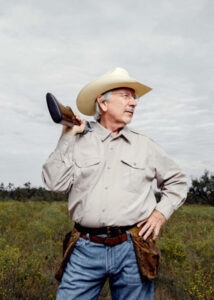 “This basically has been a ten-year process including development of preliminary data over two years and subsequently entering into a formal FDA registration process that now has involved eight years of work and data development and submission as well as review by the FDA.”
“This basically has been a ten-year process including development of preliminary data over two years and subsequently entering into a formal FDA registration process that now has involved eight years of work and data development and submission as well as review by the FDA.”
Ronald J. Kendall, Ph.D.
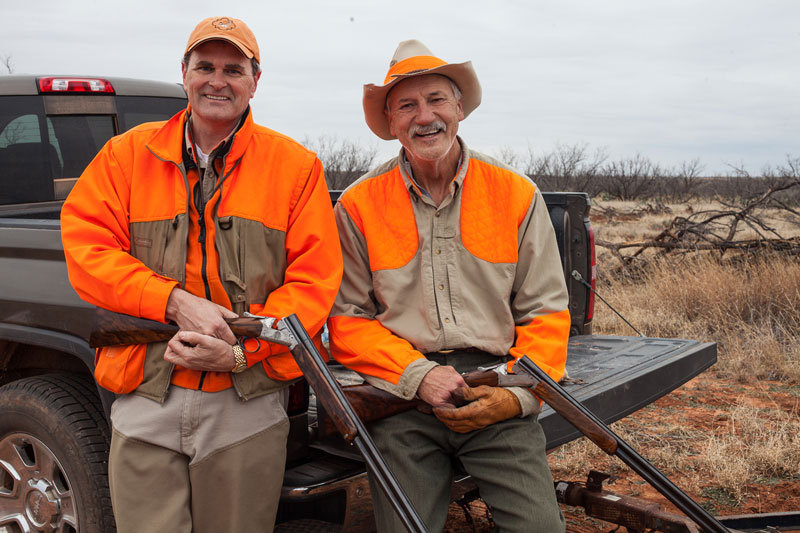
"This has been a long, arduous process to register a medicated feed treatment for wild quail through the United States Food and Drug Administration, but due to the hard work and quality information provided to the FDA by Dr. Kendall and his team at the Wildlife Toxicology Laboratory, we got the job done and we believe this will help our wild quail, particularly in the State of Texas."
Joe Crafton
Cecal Worms
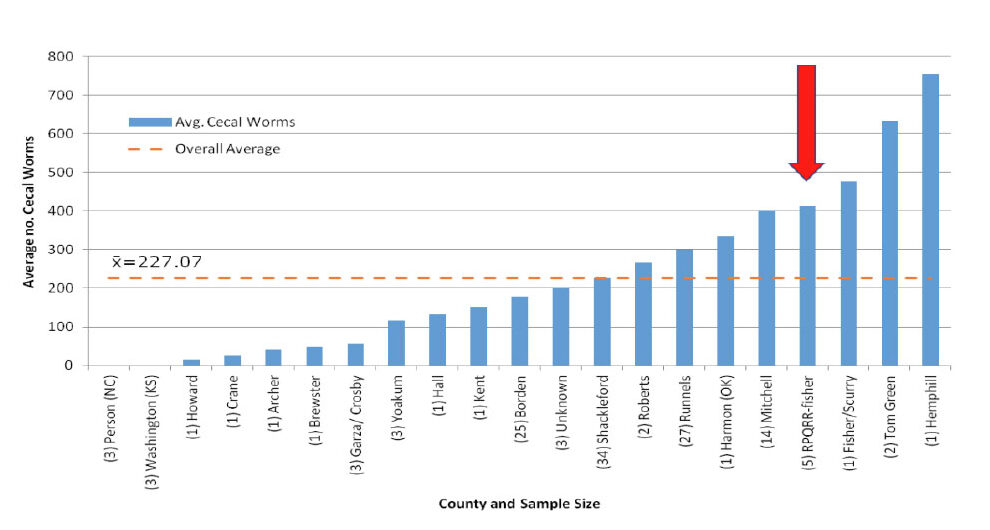
Figure 6. Cecal Worm intensity (average no. worms per infected quail) for several counties across west Texas, Jan-Feb 2017. The RPQRR (shown by the red arrow) averaged 410 cecal worms.
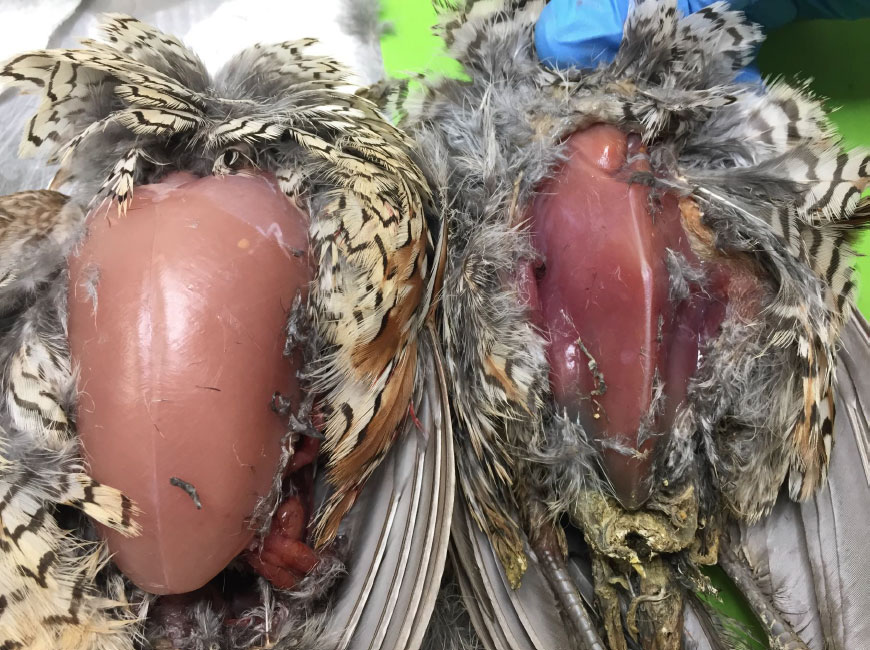
The malnutrition evidenced in the bird’s breast vs a healthy and parasite-free bird is dramatic.
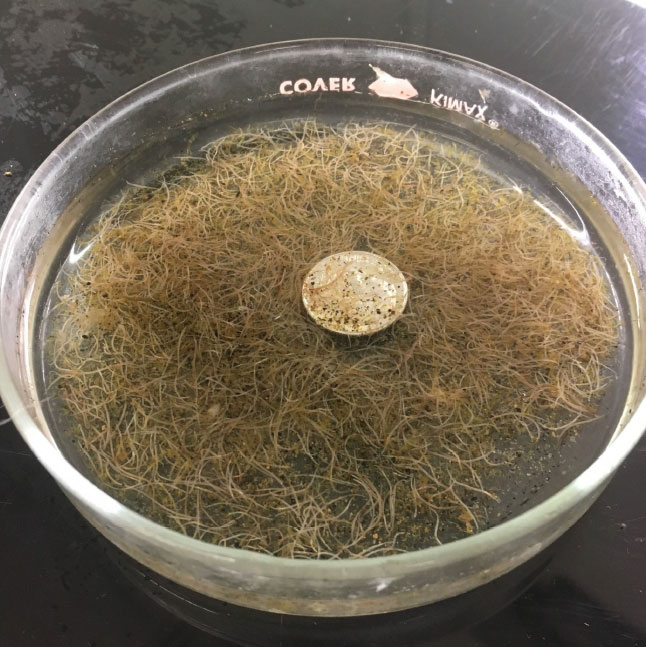
Approximately 1,700 cecal worms were found inside a single bird.
Science behind the success
Bryant Grain Company

Soon to supply hundreds of feed stores throughout West Texas
Bryant Grain Company in Aledo Texas is our manufacturing partner. Bryant manufactured the product that was used in testing and have consulted on the development of the formulation of QuailGuard. They are in the process of building inventory and have the ability to supply hundreds of feed stores throughout West Texas.

QuailSafe feeders are of heavy-duty construction and can be used with medicated feed or without. They have proven to be effective in the distribution to wild quail and protecting the medicated feed from losing effectiveness due to moisture and sunlight.
QuailGuard® Usage Recommendations
QuailGuard utilizes select grains and proprietary active ingredients to eliminate eyeworms and cecal worms, which significantly impact quail health.
As this video shows, QuailGuard has been formulated for maximum palatability for Bobwhite Quail. The primary component of QuailGuard is crumbled milo, which is mixed with a proprietary blend of vitamins, minerals, and other ingredients selected with an eye towards enhancing palatability and also bolstering immune response and reproductive capacity.
